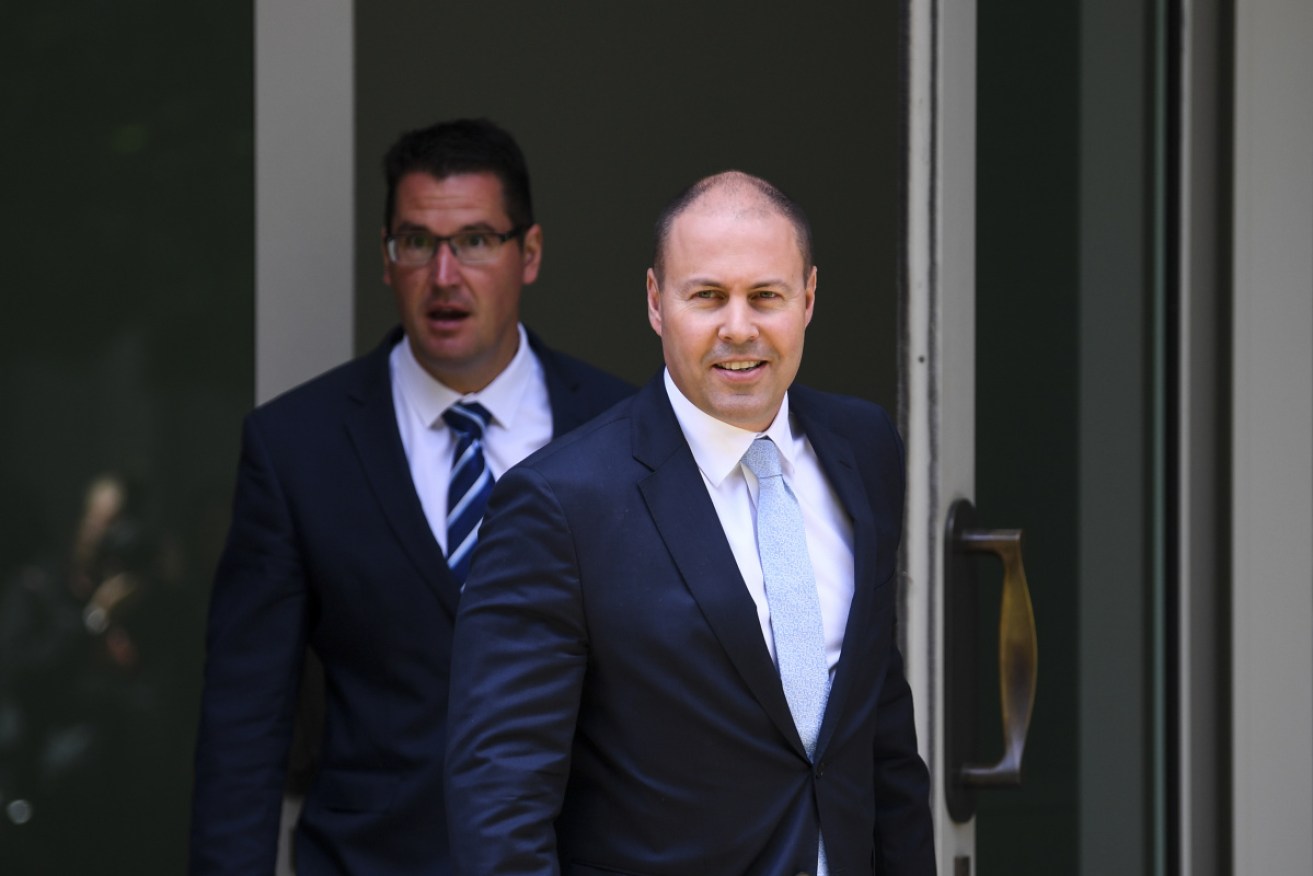‘Scare campaign’: Experts slam Treasurer’s ‘housing tax’ warning


Treasurer Josh Frydenberg leaves the 'housing industry round table' on Monday. Photo: AAP
The Coalition government’s claims that Labor’s proposed negative gearing reforms will hurt the economy and drive up rents have been dismissed as fear-mongering by housing researchers and renters advocates.
On Monday, Prime Minister Scott Morrison and Treasurer Josh Frydenberg sat down with property industry leaders at Parliament House for a housing round table, with renters and affordable housing advocates snubbed.
The major topic of discussion was Labor’s proposed rollbacks of investor tax concessions, with Mr Frydenberg issuing a “housing tax warning” after the meeting.
“The clear message from the industry is that Labor’s plan to abolish negative gearing as we know it and increase the capital gains tax by 50 per cent will have a significant detrimental impact on Australia’s housing market and the broader economy,” Mr Frydenberg said.
Leading housing researchers and policy experts accused the government of running a “scare campaign”, telling The New Daily that the Treasurer’s claims were unfounded.
“There is simply no evidence that Labor’s plan will have a significant detrimental impact on the economy,” said Grattan Institute budget policy director Danielle Wood.
“Labor’s proposed tax changes will reduce some of the tax concessions for property investment – and so it will reduce investor demand for housing,” she said.
Our best estimate is that this will have an overall effect on house prices in the range of 1-2 per cent, small in the context of regular market movements and far too small to have any impact on the real economy.”
On Friday, the head of Australia’s Reserve Bank dismissed fears that falling home prices could “derail” the economy.
While “swings in housing prices” are “difficult for some in our community”, Australians should “take some reassurance from the fact that our economy and our financial system are resilient”, RBA Governor Philip Lowe told a House of Representatives economics committee in Sydney.
Mr Frydenberg also warned that rents would rise should Labor’s reforms be implemented – a claim disputed by both researchers and renters’ rights advocates.
Ms Wood said that the Treasurer’s “scare campaign on rents makes even less sense”.
“If there are fewer investors there are less properties for rent, but those properties don’t disappear – home buyers move in, and so there are also fewer renters,” she said.
Tenants’ Union of NSW senior policy officer Leo Patterson Ross said that renters, would-be home buyers, researchers, and those at the coalface of affordable housing and homelessness know that “this housing tax warning and these problems are not real concerns” but rather “just industry trying to protect their business model”.
There is “no credible evidence” to support the government’s claims that rents would rise, Mr Patterson Ross said.
The only people claiming that rents will go up are the property industry whose interests are concerned with maintaining rents at the highest possible level.”
“If they think reforming negative gearing and the CGT discount would increase rents, then why are they not supporting it? They are treating Australians with contempt.”
UNSW City Futures research fellow Chris Martin also rubbished the Treasurer’s claims, saying that Labor’s reforms would make housing more affordable by curbing “speculative demand” for housing.
“When the Treasurer says ‘if you own your own home it will be worth less’, he really should add, ‘but that doesn’t affect the shelter it provides you, and if you want to sell and move to another house, its price will be lower too’,” Dr Martin said.
There is also no good reason for thinking the proposed reforms would lead to increased rents, Dr Martin said.
“Investors do not currently pass the benefit of negative gearing onto tenants; they leverage that benefit into greater purchasing power for themselves, and hence into higher prices,” he said.
By reducing investor demand for housing as a financial product, the reforms should also help bolster flagging home ownership rates, by assisting renters in making the leap to buying, Dr Martin said.
“The proposals should result in more renters becoming home owners, because they will be less likely to be outbid for properties by ‘investors’ than they currently are,” he said.
This is the second part of a three-part series analysing the government’s housing summit and negative gearing claims. Click here to read part one.








